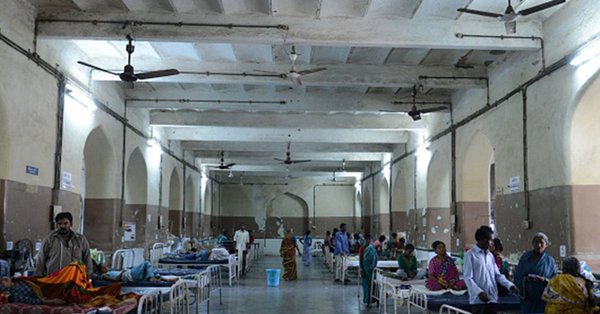Muscle relaxants up respiratory complications: Study

Muscle relaxants -- a necessary part of anesthesia during certain major operations -- may cause respiratory complications, a study has found.
Anesthetics make patients unconscious during an operation and prevent them from feeling pain. Muscles, however, are not paralyzed by these drugs and may still move.
"To prevent this, we also use muscle relaxants or, more precisely, neuromuscular blocking agents," said Manfred Blobner, an anesthesiologist at University of Munich (TUM) in Germany.
"These drugs are particularly needed when operating on a patient's chest or abdomen. They are also used to protect the vocal cords from injury when a tube is placed in the airway to allow artificial ventilation," said Blobner.
The study, published in The Lancet Respiratory Medicine, confirms that the use of neuromuscular blockers during general anesthesia is linked to a significantly increased risk of several respiratory complications after surgery.
The most common complications involving the respiratory system were a reduced capacity of the lung transiently to absorb oxygen (5.2 percent), and infections of the lung and respiratory tract (2.5 percent).
Roughly three-quarters of all patients were treated with neuromuscular blocking agents. They were shown to have a significantly higher risk developing any type of respiratory complication.
The study did not look into how the use of muscle relaxants might cause the negative effects. Earlier studies have shown that even small amounts of muscle relaxants remaining in the bodies of patients could be responsible for some of the complications.
The data show that established techniques used to avoid residual neuromuscular block do not lower the patients' risk of pulmonary complications.
Neither drugs reversing the effects of the muscle relaxants nor monitoring of neuromuscular function during anesthesia to make sure that the muscle function is completely recovered did change the respiratory outcome.
The researchers point out that this does not mean that these measures are unable to reduce residual paralysis but they must be used correctly. There may be flaws in the way these measures are implemented as well as other unknown causes for the complications.
(This story has not been edited by Devdiscourse staff and is auto-generated from a syndicated feed.)
ALSO READ
Health News Roundup: U.S. FDA approves expanded use of J&J's cancer cell therapy; Tennessee court weighs blocking abortion ban during pregnancy complications and more
Israel hails 'success' in blocking Iran's unprecedented attack. Biden now seeks diplomatic response
Arizona Republicans blocking Democratic attempt to repeal 1864 abortion ban










